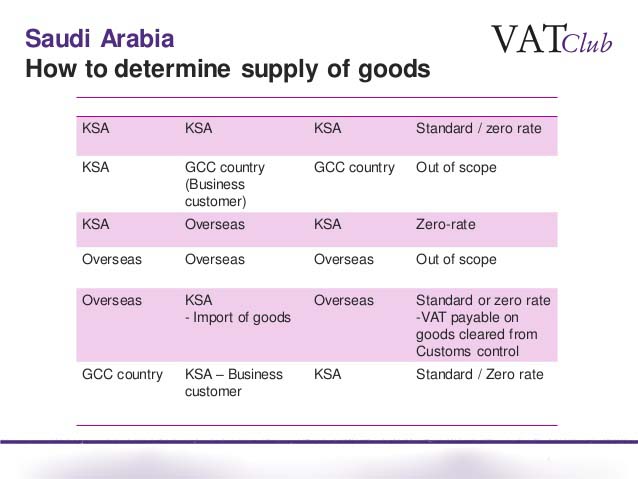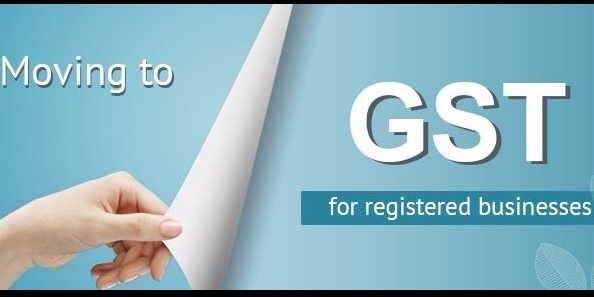
VAT and Imported Goods in the UAE
Recommended actions to facilitate the clearing of imported goods
Recommended actions to facilitate the clearing of imported goods
Following the introduction of Value Added Tax (VAT) in the United Arab Emirates
(UAE) on 1 January 2018, VAT became due on the import of goods into the
UAE. Businesses which are registered for VAT in the UAE are able to defer the
payment of import VAT and account for the VAT due on their VAT returns via the
reverse charge mechanism, whereas non-VAT registered importers are required
to make cash payments of the VAT due at the point of import.
The Federal Tax Authority (FTA) and the UAE Customs Departments are working
in collaboration to collect VAT on the import of goods. This means that where a
business is registered for VAT, it should provide its VAT registration number
(also known as a Tax Registration Number or TRN) to the Customs Department
at the point of submitting the Customs import declaration. The Customs
Department will verify the validity of the TRN on their system, and where the
TRN is valid the shipment will be cleared without payment of the VAT being
required at import.
We understand that VAT registered businesses are currently facing issues with
the import of goods arising from problems with the Customs Department being
able to verify the TRN on their system. As a result, businesses are finding their
goods are stuck at the border and are not being cleared by the Customs
Department. Our understanding that the Federal Tax Authority and the Customs
Department are working together to resolve these issues as a matter of urgency,
however in the meantime there are actions which can be taken in order to
facilitate the clearing of imported goods.
If you find yourself in the situation where your TRN is not recognized on the
Customs Department system as valid, you should take the following action:
Login to the FTA eServices portal using the credentials associated with your
TRN;
Navigate to the ‘VAT’ section on the navigation bar at the top of the page;
Click on the form “VAT301 – Import Declaration Form for VAT Payment”.
This is the form which is normally used in the case of non-VAT registered
importers;
Enter the port of entry, customs declaration number, and declaration date,
then click next;
On the next screen, click the button to “Fetch associated registration
number”. This will populate the TRN in the declaration form;
Complete the remainder of the declaration form and click submit;
You will then be taken to a number of payment options. By having a used
the option to “Fetch associated registration number”, you should now see
the option to defer the payment of VAT to the tax return. Click this option
and submit the form.
Following this process, the FTA should electronically update

KSA has amended some of the VAT Regulations and issued the
mechanism of the private educational sector
The Kingdom of Saudi Arabia (KSA) General Authority of Zakat and Tax (GAZT) has recently approved a series of amendments to the articles of the Value Added Tax (VAT) Implementing Regulations. Some of the new rules are listed below:
Article 8: The VAT registration certificate of a business or a branch should be displayed and visible to the general public.
Article 53: All registered businesses need to issue a simplified VAT invoice for all transactions not otherwise covered specifically by the Article – this will generally affect transactions with the end consumers.
Article 63: If the understatement of Net Tax by the Taxable Person is less than SR 5,000, the taxable Person may correct the error by adjusting the Net Tax in its next Tax Return.
Businesses that do not comply with the above requirements will be penalized. The penalty is up to SAR 50,000.
Mechanism of collecting VAT from the private educational sector GAZT announced the mechanism by which the government bears the VAT on behalf of Saudi nationals in the private educational sector, as mandated by the Royal Decree No. (A/86) dated 18/4/1439 AH. The mechanism for Saudi and non-Saudi citizens is listed below:
Saudi citizens: Private educational institutions registered in the VAT system are required to issue tax invoices to Saudi citizens for the amount due for the services provided, excluding VAT. The institutions must also confirm the identity of the recipients of the service and include their national identity information on the tax invoices issued to them.
Non-Saudi citizens: The institutions are required to issue tax invoices including the 5% VAT rate in correspondence with the VAT law and regulations.
When filing their tax returns through the website, the private sector institutions should enter the non-Saudis transactions which are subject to the standard 5% rate in the “Local Sales Subject to the Standard Rate” section. Meanwhile, the transactions with Saudi nationals should be entered in the "Sales to citizens (private health services / private education / first residence)". Similar to other sectors, the private educational institutions registered for VAT are entitled to deduct the tax due on inputs, as outlined by the VAT law and regulations – that is, these transactions are NOT treated as exempt from Vat.

KSA has amended some of the VAT Regulations and issued the mechanism of the private educational sector
In a press release the General Authority of Zakat and Tax (GAZT) issued clarification on the Value Added Tax (VAT) treatment of the Kingdom of Saudi Arabia lease-to- own and rent-to- own contracts of assets (under Islamic finance these may be known as Muntahia Bittamleek and Ijarah Muntahia Bittamleek) which generally apply to e.g. supplies of cars and property. GAZT has confirmed that these contracts will be treated as non-continuous supplies i.e. a one-off supply of goods. This clarification therefore has significant implications for the “transitional” application of VAT to existing contracts, and to new contracts. Specifically:
For contracts which were concluded and where the customer took possession of the goods before 1 January 2018, no VAT will be applicable on the installments even where they are received after 1 January 2018.
For contracts which were concluded after 1 January 2018 and where the customer took possession of the goods after 1 January 2018, VAT will be applicable.
For contracts which were concluded before 1 January 2018 and where the customer took possession of the goods after 1 January 2018, VAT will be applicable on the entire consideration relating to the asset (irrespective of whether any payment was received before or after 1 January 2018).
Summary Table Below
Date Customer Enter |
Date Customer Takes |
Applicability of VAT |
31 Dec 2017 |
31 Dec 2017 |
Not applicable on entire |
31 Dec 2017 |
2 Jan 2018 |
Applicable on entire |
2 Jan 2018 |
2 Jan 2018 |
Applicable on entire |
By adopting this view, GAZT appears to be taking a narrow interpretation of the
special domestic date of supply provisions in KSA law surrounding supplies.
It is also aligned with a recent European VAT case Mercedes Benz Financial
Services which found that a contract where ‘in the normal course of events,
ownership is to pass at the latest upon payment of the final instalment’ is a
supply of goods with a single date of supply.
To summarize: for these contracts, VAT where due, shall be payable on the
entire value of the asset being sold under the contract, based on the date the
goods are made available to the customer, and not upon receipt of each
instalment.

GST Applicability - Under Construction and Ready-To-Move-In Properties
CBEC has clarified on 14-12-2017 that no GST is applicable on ready-to-move-in or completed properties as per Para 5(b) of Schedule II of the CGST Act, 2017. GST is payable only on the under construction properties, which have been categorically summarized here-in-below for ease of your reference:
(a) Property for which completion certificate has been issued : No GST is applicable on ready-to-move-in or completed property as per the CGST Act, 2017.
(b) Under Construction property when part consideration has been paid to the builder before GST rollout : Service Tax at the rate of 4.5% is applicable on the invoices raised or consideration paid before 01-07-2017. However, GST at the rate of 12% shall be applicable on the invoices raised or consideration paid on or after 01-07-2017.
(c) Under construction property when entire consideration paid to the builder before GST rollout : No GST is payable on such property even if the construction is completed after 01-07-2017. Such transaction will attract Service Tax at the rate of 4.5% as per the Point of Taxation Rules, 2011.
Further, the effective rate of GST payable on purchase of under construction properties from a builder involving transfer of interest in land or individual share of land to the buyer, shall be 12% with full Input Tax Credit [GST payable at the rate of 18% on two-third of the amount for the property only].
However, consideration which doesn't constitute transfer in land or undivided share of land as part of consideration, such as construction services provided by a sub-contractor to the builder, shall attract GST at the rate of 18% with full ITC.

